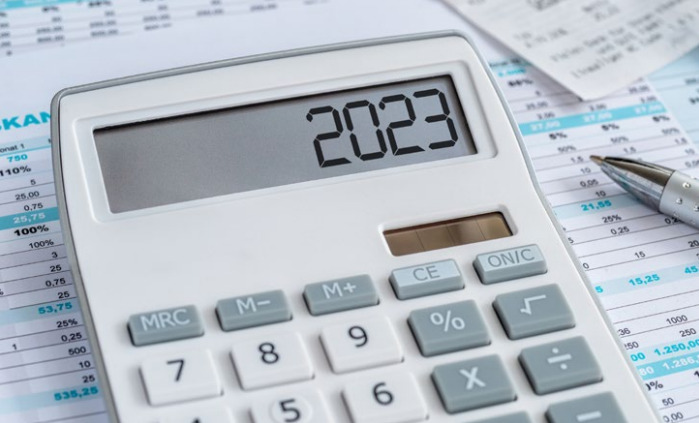Analysing the government’s justification behind the Finance Bill

The Finance Bill 2023 proposes a raft of tax measures, some of which appear to have explored some uncharted territory. This is the first Bill under the new regime and it is grappling with several challenges. A good number of the proposals are aimed at expanding the tax base and streamlining tax administration which is to be applauded. However, some of the measures, if they are not reconsidered, could have a negative impact on the economy.
This necessitated President William Ruto to break the silence and somehow defend the Finance Bill 2023. The leader of the majority has also issued an explainer on the substance and ramifications of the ideas in the Finance Bill 2023 noting that there has been misreporting on the content and implications of the proposals thereon.
The Finance Bill 2023 proposes to remove the provisions of the bill that charge VAT at a reduced rate of 8% on petroleum products and liquefied petroleum gas (including propane). Under the VAT exemption schedule, the phrase “Liquified Petroleum Gas (LPG)” has been added. LPG being exempt from VAT is a step that will benefit taxpayers and promote the use of less fossil fuel. This is a welcome move as Kenya Kwanza’s manifesto outlined that the government is committed to reducing emissions by 32% relative to ‘business as usual’ by 2030. This proposal to exempt LPG is consistent with the government’s Green policy and commitment to addressing climate change.
This exemption is a progressive step since the Finance Act 2022 reduced the VAT status of LPG including propane from 16% to 8%. This ensured that LPG became affordable for most households which was a positive step towards the realization of reduced carbon emissions and energy/environmental conservation.
On the other hand, the abolition of the 8% VAT rate on Petroleum Products listed under Section B of Part I of the First Schedule to the VAT Act is that these Petroleum Products will now be subject to VAT at the standard rate of 16% which will increase the price of such commodities against the backdrop of a major cost of living crisis in Kenya.

In justifying this, the President argued in favour of implementing uniform VAT rates instead of having one rate at 8% and another at 16%. He claimed that the additional 8% VAT would generate approximately Ksh. 50 billion in revenue for the government, which could be allocated towards road infrastructure. In order to achieve a balance, the President announced that the Finance Bill aims to eliminate the 3.5% Road Development Levy on fuel, the 2% Import Declaration Fee on fuel, and the 8% VAT on LPG.
This will provide additional revenue to the government as it has been having trouble paying its foreign debt, clearing outstanding debt, paying public officials’ wages, and distributing funds to the counties. The KSh. 50 billion revenue points to the direction of expanding the net as it increases revenues by deepening the tax base. If this is adopted, it can only be hoped that the additional revenue will aid the Kenyan economy in efficiently and effectively manoeuvring the global economic slowdown, swollen public debt, an almost irreparable high cost of living, and a weakening shilling.
Kenya is facing a growing debt burden, with annual interest payments on domestic debt alone having surged to $5.09 billion this year. Currently, the President noted that the public debt is estimated to be in the range of Ksh 8.8 to 9 trillion and the fiscal deficit this year has reduced from 1.1 Trillion to 630 billion. The President assured that the government is committed not to defaulting as other African countries have and that Kenya will not borrow beyond what it already has. The cash crunch was experienced in March as the government delayed the payment of salaries to government staff.
The Majority Leader notes that the Finance Bill 2023 has set specific proposals to lower the cost of living for all Kenyans for example the affordable housing fund which is a savings plan deduction with benefits accruing to employees. The Principal Secretary for Labour, Mr. Geoffrey Kaituko, stated that the Fund should be viewed by all as an investment as the contributions made by employees to the Fund shall also get returns based on the return on the Fund. He noted that the housing fund is part of expanding housing coverage for every Kenyan and that there is a need to come up with more sustainable ways of financing it. He encouraged Kenyans to support this proposal by doing a comparison with Tanzania where the contribution to the National Social Security Fund (NSSF) is 10 percent whereby the employee pays 10 percent and the employer matches with another 10 percent. This received backing from the President who explained that the Housing Fund initiative aims to provide a viable solution for proper housing for slum dwellers. Additionally, he emphasized that labour-intensive infrastructure programmes, such as the proposed Housing Fund, would also generate employment opportunities for the approximately 5 million unemployed youths. He clarified that the deduction for the Housing Fund would not be in the form of taxes but a contribution deducted from the basic pay.
The explainer from the majority leader outlined that for employees who qualify for affordable housing, the contributions by the employee shall be used to finance the purchase of a home under the affordable housing scheme. Employees who are not eligible for affordable housing, upon the expiry of seven years from the date of the start of making the contributions, or after the attainment of retirement age, whichever is earlier the employee may opt to:
- b) Transfer contributions to a retirement scheme or convert to a pension;
(c) Transfer contributions/benefits to another registered person of their choice;
(d)Transfer contributions/benefits to a spouse or dependent children; or
(e) Receive back all the contributions made in cash hence a savings plan.
It has been argued that Finance Bill 2023 is an unfair and regressive legislation that favours the wealthy and corporations at the expense of the working-class and poor majority. Additionally, others have argued that the government seems to want to please the IMF and World Bank, in a way to justify liquidity for the next loan agreement hence the push for the Finance Bill 2023 by the government. To buttress this, President Ruto clarified that the Finance Bill was not intended to excessively burden Kenyans with taxes, but rather aimed to increase the tax contribution to the GDP from 14% to 16%.
With this in mind, there are other measures proposed to increase tax collection like having the high-income earners who earn above KSh. 500,000 per month to remit PAYE of 35% with effect from July 2023. Additionally, the proposed change in the turnover range for which turnover tax is applicable from the existing range of KSh 1 million to KSh 50 million to a range of KSh 500 thousand to KSh 15 million and a raise of the turnover tax rate from 1% to 3% with effect from July 1, 2023.
Public sector trade unions have called upon Parliament to consider the public opinions and review and reject some of the proposals that will adversely affect Kenyans. However, some of the President’s allies have suggested otherwise.
Nandi Senator Samson Cherargei posted on his Twitter account that the decision to pass the Finance Bill 2023 by Parliament is not optional and even a comma shall not be amended since the government will either need to borrow more money or raise our own revenue through taxation.
In the instance the Bill is passed as is without consideration of the public submissions, it will defeat the essence of public participation as enshrined under Article 118 of the Constitution which mandates Parliament to ‘facilitate public participation and involvement in the legislative and other business of Parliament and its committees. Citizen involvement in policy-making and implementation strengthens and deepens good governance.

